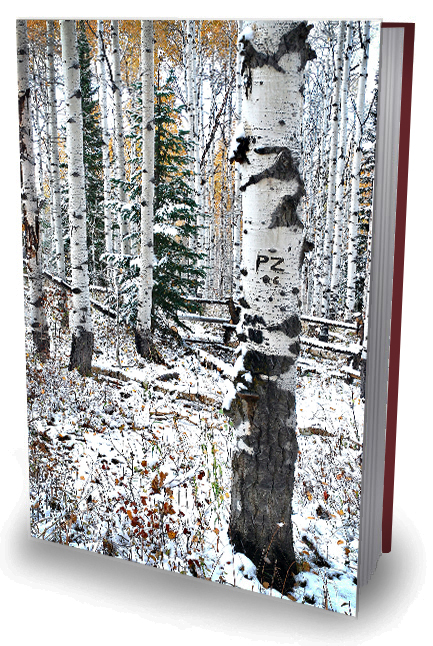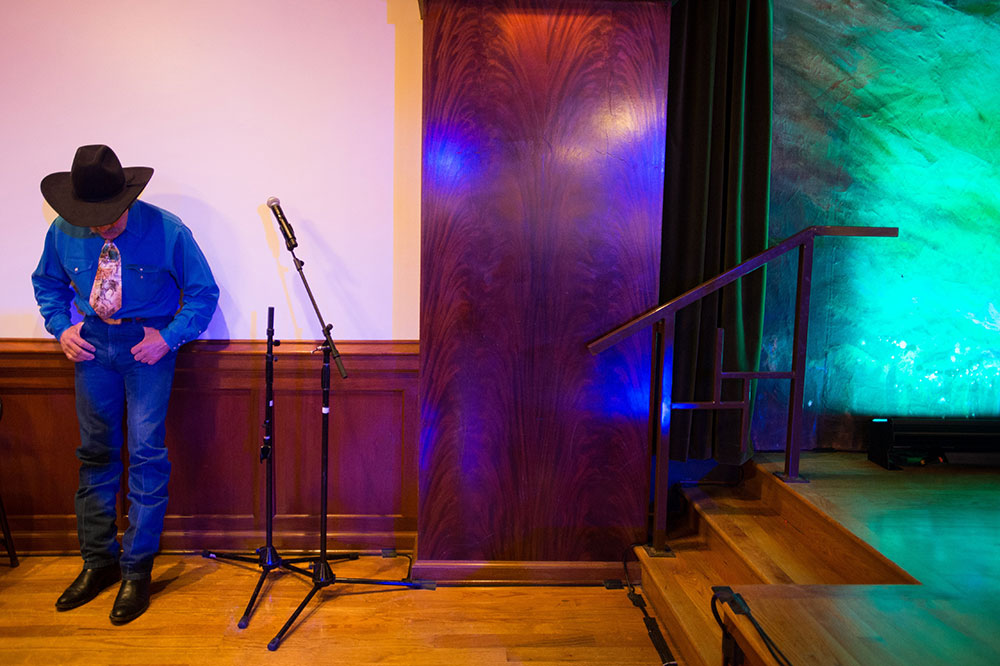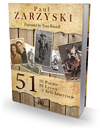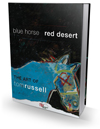
From Paul Zarzyski, one of Montana’s most distinguished, respected, and consistently entertaining poets, comes “Going It Alone,” his first collection in eight years. Best known-from Elko to Reno, from Monterey to Melbourne, from London to Swansea, Missoula to BUTTE!-for his wild-ride “rodeo poetry” deliveries across both the page and the stage, Zarzyski now harkens back to his Richard Hugo literary wellspring to fuel his ventures into fresh poetic wildernesses. Lyrical and outrageous, controversial and heartbreaking, humorous and poignant, “Going It Alone” is destined to become one of the most original and expansive collections of poetry published in the West this, or any other, year.
Book Information
Dimensions: 6 x 9
Price: $19.95
Release Date: April 30, 2022
Praise for Previous Works
Mr. Zarzyski alternates between bluster and lyricism. For the former, he uses lopingly metered stanzas and punch-drunk, self-mythologizing bravura…But he proves equally adept at meditative free verse…”
— Megan Harlan, The New York Times Book Review
“In prose literature there are labels such as as ‘Kafka-esque’ and ‘Hemingway-esque.’ In cowboy poetry there is, or ought to be, ‘Zarzyski-esque’ No other ‘esques’ come close.”
— Jesse Mullins, American Cowboy
“Paul Zarzyski’s poems will break your heart—and then turn right around and mend it. He looks pain squarely in the eye, takes its measure, and counters it with tenderness and wisdom, all in language that should be set to music…”
— Ed McClanahan, Author of The Natural Man
About Paul Zarzyski
 Paul Zarzyski—recipient of the 2005 Montana Governor’s Arts Award for Literature and author of a dozen collections, including this third volume from Bangtail Press—has written poetry for fifty years. In the early 1970s, while studying with Richard Hugo, Madeline DeFrees, Quinton Duval and Gary Thompson in the Master of Fine Arts Creative Writing Program at the University of Montana, he chanced upon rodeo, bareback bronc riding, a passion that seeped osmotically into his work. His first full collection, The Make-Up of Ice (University of Georgia Press, 1984), is divided into two sections, the opener set in Montana, while the closer is set in his childhood home ground, Hurley, Wisconsin. This pull between the West and Midwest continues to this day, as he returns often to the very same home (albeit in the sad absence of his parents) to write in the very same kitchen where his mother “dribbled just a little” coffee into his baby bottle, she confessed decades later, after her infant son vigorously tugged at her cup with glee.
Paul Zarzyski—recipient of the 2005 Montana Governor’s Arts Award for Literature and author of a dozen collections, including this third volume from Bangtail Press—has written poetry for fifty years. In the early 1970s, while studying with Richard Hugo, Madeline DeFrees, Quinton Duval and Gary Thompson in the Master of Fine Arts Creative Writing Program at the University of Montana, he chanced upon rodeo, bareback bronc riding, a passion that seeped osmotically into his work. His first full collection, The Make-Up of Ice (University of Georgia Press, 1984), is divided into two sections, the opener set in Montana, while the closer is set in his childhood home ground, Hurley, Wisconsin. This pull between the West and Midwest continues to this day, as he returns often to the very same home (albeit in the sad absence of his parents) to write in the very same kitchen where his mother “dribbled just a little” coffee into his baby bottle, she confessed decades later, after her infant son vigorously tugged at her cup with glee.
In light of his early affinity for caffeine sipped in the midst of his immigrant mother’s symphonic Italian nursery-rhyme lilts, in the midst of his Polish iron-ore-miner/outdoorsman/WWII Veteran father’s animated storytelling patina’d in visceral vernacular, Paul had little choice but to become a blue-collar poet. Moreover, his work has been welcomed into the Cowboy Poetry folk tradition, highlighted by the annual “National Gathering” in Elko, Nevada, where Paul has performed for 34 consecutive years.
As novelist James Welch wrote, “Paul Zarzyski is a man of many hats—fisherman, bronc rider, son, worker, lover. From the white heat of his rodeo arenas to the calm lakes and clear streams of all our lives, this poet captures experience the way a bear goes after salmon—with confidence and patience, with intensity and purpose….”
Today, Paul is focused most pensively, albeit every bit as evocatively, on the closing seconds of his lifetime ride aboard this spinning, orbiting bucking horse orb, a ride he hopes to finish on a gravity-less note out into what he dubs “The Musical Universe of Creativity’s Infinities.” Writing more and more in praise of the remaining wilds of our beloved Mother Ship and his affections for the intricacies and mysteries of Her diverse life forms, “our fellow soulful beings,” Paul relinquishes all distinctions, labels, stereotypes—folk art to fine art, literati to lariati—save one: Human Being Poet of, and humbled by, “The Glorious Commotion of it All.”
















